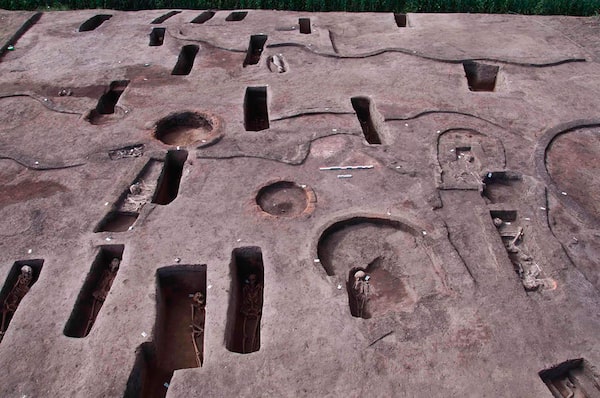
This photo provided by the Egyptian Tourism and Antiquities Ministry on April 27, 2021, shows ancient burial tombs unearthed in the Koum el-Khulgan archeological site, in the Nile Delta province of Dakahlia, Egypt.The Associated Press
Egyptian archeologists unearthed 110 burial tombs at an ancient site in a Nile Delta province, the Tourism and Antiquities Ministry said Tuesday.
The graves, some of which have human remains inside, were found at the Koum el-Khulgan archeological site in Dakahlia province, around 150 kilometres northeast of Cairo, the ministry said.
They include 68 oval-shaped tombs dating back to the Predynastic Period that spanned from 6000-3150 BC, the ministry said.
There are also 37 rectangular-shaped tombs from an ancient era known as the Second Intermediate Period (1782-1570 BC), when the Semitic people of Hyksos ruled ancient Egypt, the ministry added.
The remaining five oval-shaped tombs date back to the Naqada III period that spanned from around 3200 BC to 3000 BC.
Archeologists also found human remains of adults and children and funerary equipment and pottery objects in these tombs, the ministry said.
The discovery is the latest in a series of archeological discoveries in recent years for which Egypt has sought publicity in the hopes of reviving its tourism sector. Tourism has been badly hurt by the turmoil after a 2011 uprising and now the coronavirus pandemic.
Our Morning Update and Evening Update newsletters are written by Globe editors, giving you a concise summary of the day’s most important headlines. Sign up today.